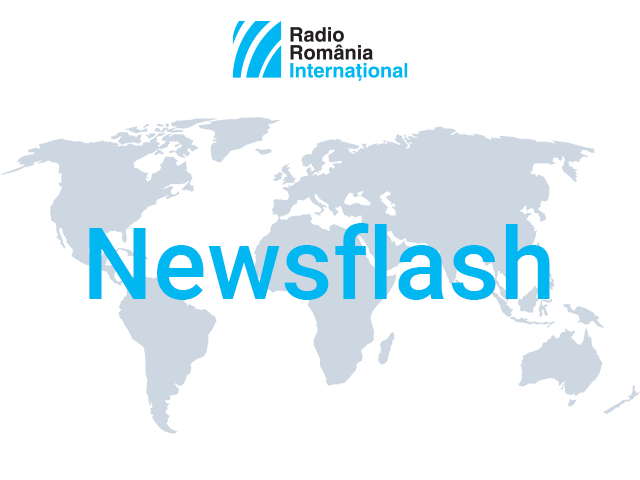September 14, 2022 UPDATE
Click here for a news update

Newsroom, 14.09.2022, 20:01
Debates – The new scheme for capping and compensating the price of energy on Wednesday reached the parliamentary committees in Bucharest for debates. The senators from the economic and energy commissions are debating the document recently adopted by the government, which includes the new scheme for compensating and capping the energy price, which applies from September 1. According to the emergency ordinance, the monthly consumption level up to which the price will be capped was reduced to 255 KWh, in the case of electricity. The intention of the government is for people to try to save electricity in the coming period. In the case of natural gas, the ordinance does not make any changes for domestic consumers. The interim speaker of the Senate, Alina Gorghiu, has declared that the ordinance will be modified in the commissions, if anything was omitted, but the changes will be made with the agreement of the governing coalition. The provisions in the emergency ordinance have triggered criticism from the opposition and the business environment.
Energy — The EU will propose measures to cap the income of low-cost electricity producers and will force companies that sell fossil fuels to share the profits they make following the increase in energy prices. The announcement was made on Wednesday by the president of the European Commission, Ursula von der Leyen, during her speech on the state of the EU held in the plenary session of the European Parliament gathered in Strasbourg. She also said that the EU bloc was also discussing capping energy prices and was working on establishing a more representative gas reference price than that at the TTF hub in Amsterdam. In the spring, at the TTF hub in Amsterdam, the gas pricing hub for the European gas market, the pricing reached the record level of almost 335 Euros for one MWh. Also, the European Commission will propose that member countries should reduce their net monthly electricity consumption by at least 10% and by 5% during peak hours, until March 31, 2023. Instead, the EC document does not include a ceiling for the price of natural gas, an idea that caused divisions among the member countries. Ursula von der Leyen has warned that a difficult period will follow for companies and households in Europe, evoking the economic consequences of the war in Ukraine.
London – Five days after the death in Scotland, on September 8, of Queen Elizabeth II of Great Britain, the Queen’s coffin arrived at Buckingham Palace in London, last night, to the applause of the crowd, and it was greeted by the new King Charles III. After being on public display for the first time, for 24 hours, in Edinburgh, the royal coffin was flown to the British Capital by a Royal Air Force plane and deposited overnight at Buckingham Palace before being moved, on Wednesday, to Westminster Hall, the building of the British Parliament. From this evening, people will have access to the Parliament building, to pass by the Queen’s coffin. People started queuing as of Tuesday. Hundreds of thousands of people, spread over kilometers and regardless of the weather, are expected to queue for hours to bid their final farewell to the queen. Queen Elizabeth IIs funeral will take place on September 19, at Westminster Abbey. Romania will be represented by President Klaus Iohannis. Her Majesty Margareta, the Custodian of the Crown of Romania, and Prince Consort Radu will also attend the funeral.
Software — The Romanian government will force all central and local public authorities to give up Russian anti-virus solutions or applications that could be under Moscows control. A draft law in this sense was on the agenda of the government’s meeting on Wednesday, in the context in which other European states, such as Germany and Italy, have already made such decisions. Kaspersky company, which produces one of the best known antivirus solutions, will be directly affected by this measure, because all its software will have to be uninstalled from public computer systems in the country. Any antivirus program creates backdoors on computers and could be used for espionage. The bill’s substantiation note shows that many public institutions and local administration authorities in Romania, including Bucharest City Hall, purchase and use Russian antivirus programs, due to their low prices.
Tennis — The Romanian tennis player Ana Bogdan (65 WTA) qualified, on Wednesday, to the quarter finals of the WTA 250 tournament in Portoroz, Slovenia, after defeating the Slovenian Tamara Zidansek, 6-1, 6-7, 6-1. The Romanian player will fight for a place in the quarter finals with the Spanish Cristina Bucsa (110 WTA), or the Brazilian Beatriz Haddad Maia (18 WTA). The Portoroz tournament, on an outdoor hard court, has prizes up for grabs worth over 200 thousand Euros. (LS)





























